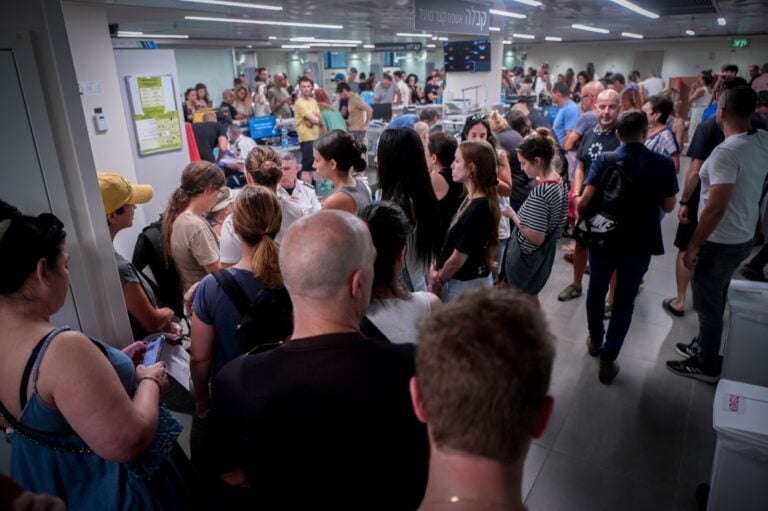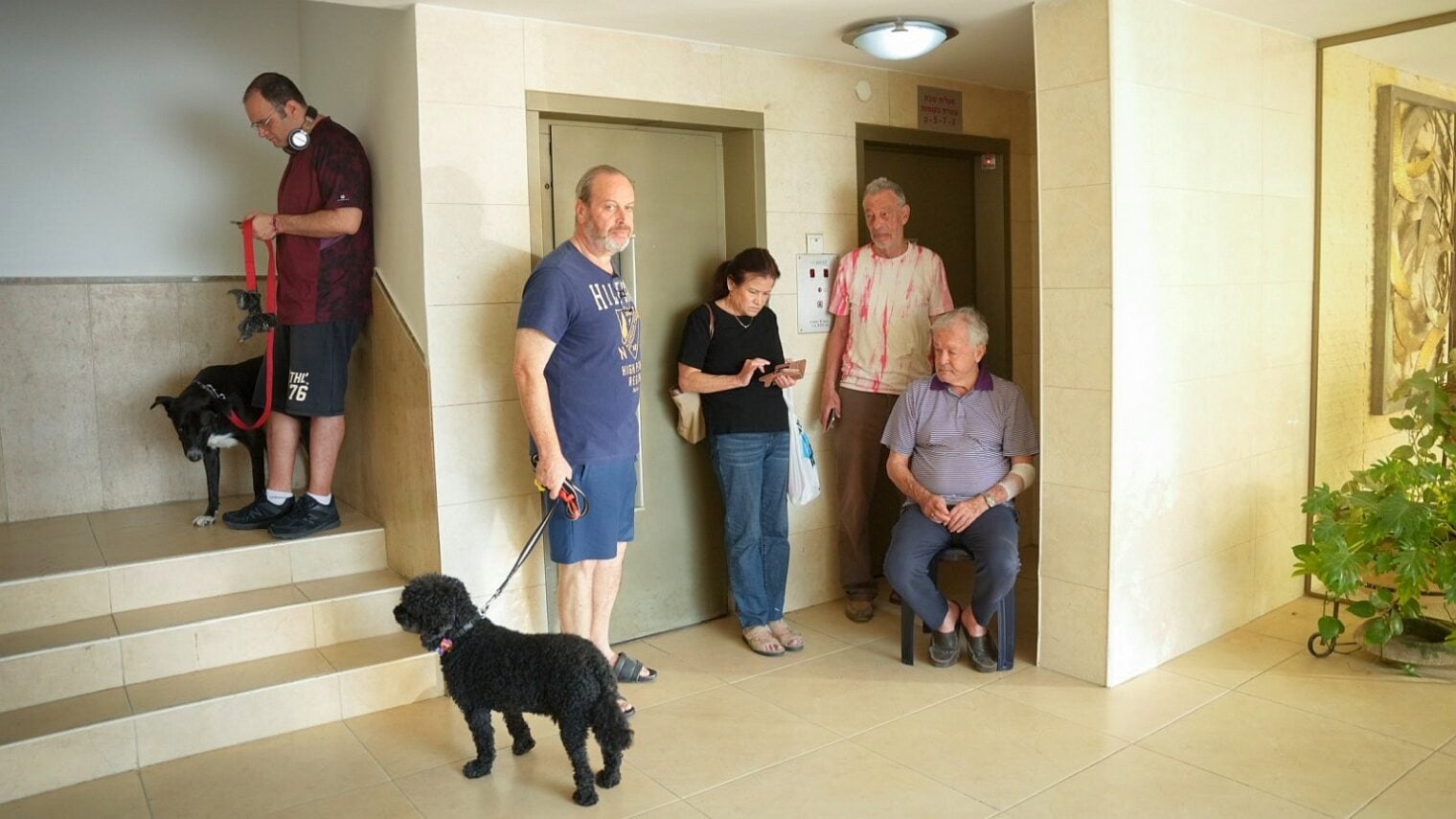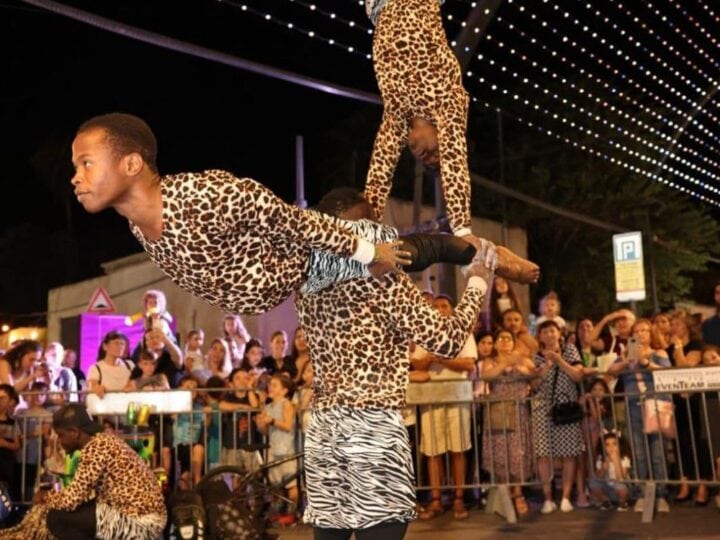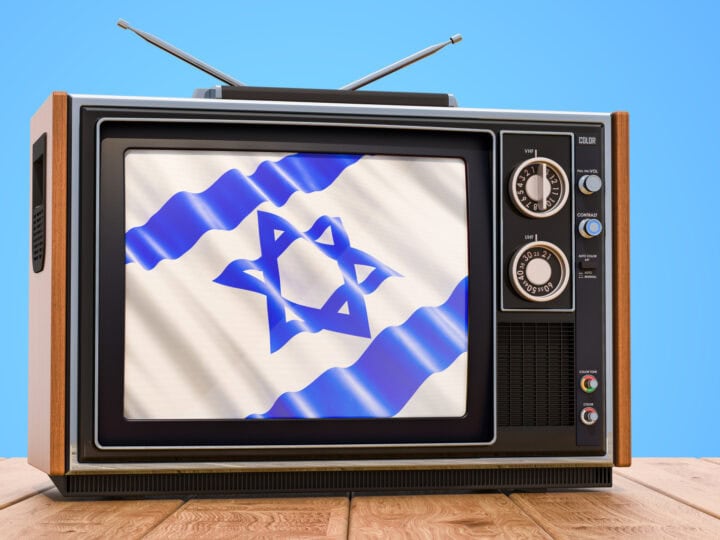Yesterday I was woken at 6:30am by the sound of distant sirens. There were a few of them, so it wasn’t as easy to distinguish the normally very distinctive rise and fall of the siren’s wail.
“Is that…?” I said, sitting up.
“No,” said my husband. “It can’t be.”
But then, a few moments later, we heard a boom, then another.
We both reached for our phones, and as I touched the screen dozens of red alerts from all over the south and central part of Israel began jumping up, one after the other — Sderot, Hod Hasharon, Ashkelon, Petah Tikva, Ashdod, and places I’d never even heard of.
We went straight for the news pages of the Israeli press, but there was nothing there. It was Saturday, on the morning of the second holiday of Sukkot, the journalists were just not working yet.
“Are we at war?” I asked.
The explosions continued, and eventually – when a particularly big one went off – we got up. And nothing has been the same since.
We are at war. A war that, shockingly, we were completely unprepared for, though the country has been training for it for years.
At first, we thought it was just rocket fire – something Israel is used to – though there were more direct hits than usual. But gradually the news began to filter out about Hamas gunmen infiltrating 20 or so villages in the south, as well as a party in the desert. And that’s when the awful reality began to hit.
We spent the day glued to our phones and the television. Everyone in shock. Sharing whatever knowledge we could glean. Neighbors checking in on neighbors, friends checking friends. Our three boys all came home.
And the news got worse and worse.
I checked with all the staff at ISRAEL21c. Abby and Naama were safe, near Jerusalem; but in the south, Yulia was running for shelter constantly, under a barrage of missiles. Her shelter – the stairway of her building.
Ben, who handles our content management system and lives abroad, had just arrived on Friday for a rare visit home, and was under unexpected attack in Tel Aviv, giving him unwelcome flashbacks to the Gulf War and the years he spent living near Gaza.
Natalie, on the coast, was about to go donate blood, though she and countless others would be turned away because the response overwhelmed the country’s blood services network.
It’s funny, but my first instinct when I realized we were at war, was to cook. I made chili – something warm and strong for the soul, and chicken schnitzels – because there is nothing as tasty as fresh schnitzel. My husband joined me, and we made a whole batch of food.
What do you pack for going to war?
I’m glad we did. In the afternoon, our middle son was called up. He brought a rucksack down and started packing. What do you pack when you are going to war? My heart began to contract and squeeze painfully.
Too soon, far too soon, my husband was driving him south towards Gaza. One more boy, in a stream of thousands, going to fight. And all the fears of mothers and fathers, sisters and brothers, friends and relations, going with them.
I took the dog out for a walk. What else can you do but go on? When I got back, I heard that the daughter of a near neighbor, the sister of my youngest son’s best friend, had been killed in an attack on an army base in the south.
And when we went round to comfort the family, we heard another child in our small village had been kidnapped by Hamas.
A dark day
Yesterday was a dark, dark day in Israel. A day like no other. The attack by Hamas took Israel completely by surprise, and many questions are already being asked about how this could happen.
There are currently over 1,800 Israelis reported injured, many critically, and the number of dead stands at 300. But everyone knows these numbers will rise.
How will this impact our coverage at ISRAEL21c? I honestly don’t know. We have never experienced an attack like this before. It’s Israel’s 9/11. And the resulting war could go on for a long time.
But one thing I do know is that Israelis are resilient. In a crisis, they pull together and protect one another.
This morning I went early to the supermarket to buy some essentials. It was a mess in there, huge lines and empty shelves. I imagine this is what it looks like in the US before a hurricane comes in.
Ahead of me, in the very long line, was an older man and woman with a trolley piled high with food. As I drove out of the village shortly afterwards, I saw they had stopped by the side of the road and were giving their bags to the soldiers stationed at the entrance to protect the community. This is Israel in a crisis.
The divisions of the last year over the judicial overhaul have caused a fundamental rift in Israeli society, and it is more than likely that it was this that gave Hamas the opportunity to strike, but already Israelis are closing ranks. Already they are beginning to stand shoulder to shoulder.

So we will continue with all our strength to bring you stories of the people of Israel, to tell you about the remarkable people trying to make life better, even in these most difficult of times.
Israel is a country that bursts with creativity and innovation, it’s a joyous place where people celebrate life. But there’s a flipside that defines us just as much and intensifies the good times – and that is the battle to survive in a hostile location, where neighbors are sworn enemies. This is where we are now.
This afternoon I go to the funeral of a 19-year-old. I hope, with all my heart, that this is the last.

















